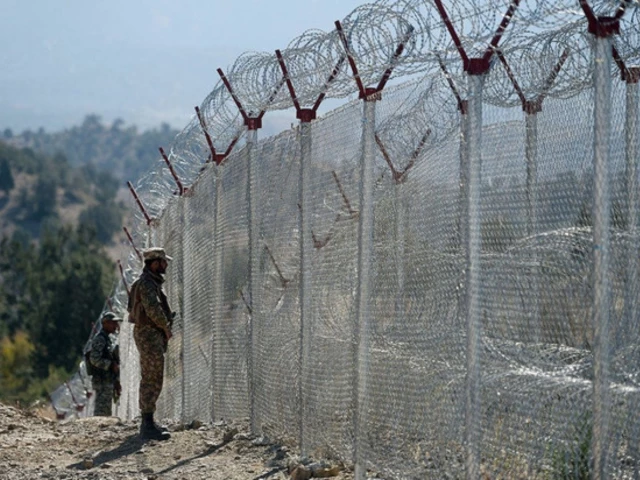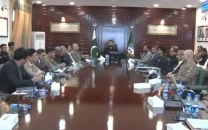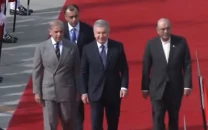Army delivers swift response to Afghan provocation
Pak response leaves several Taliban, TTP men dead; Fleeing Afghan troops leave behind dead bodies

Unprovoked firing by Afghan forces along the Pakistan-Afghanistan border prompted a strong response from the Pakistan Army, resulting in the killing of several Afghan soldiers and Tehreek-e-Taliban Pakistan (TTP) terrorists.
According to security sources, Afghan forces on Saturday night opened unprovoked fire at multiple locations along the border — including Angoor Adda, Bajaur, Kurram, Dir and Chitral areas in Khyber-Pakhtunkhwa (K-P) and Zhob district in Balochistan province.
The firing, they added, was aimed at facilitating the cross-border movement of the formations of "Khawarij" — TTP operatives. The Pakistan Army's "alert and vigilant" posts responded swiftly and forcefully, and the exchange of fire was continuing till the filing of the report.
Security sources said the Pakistan Army immediately carried out an effective retaliatory strike, targeting several Afghan positions. Pakistan's "timely and precise action" destroyed multiple Afghan border posts and left dozens of Afghan soldiers and Khawarij militants dead.
According to security officials, several Taliban personnel fled their positions, leaving bodies scattered in the area. They said the aggression from the Afghan side comes at a time when Afghanistan's Foreign Minister Amir Khan Muttaqi is on an official visit to India.
Pakistan is also skilfully targeting terrorist camps and hideouts of Khawarij and ISIS located near the border inside Afghanistan. Afghan forces have reportedly retreated from several areas, while Pakistan's effective and intense counteroffensive continues, said officials.
According to AFP, heavy clashes broke out late Saturday between Afghan and Pakistani security forces on the common border after Kabul accused Islamabad of carrying out air strikes on the capital, officials from both sides said.
"In retaliation for the air strikes by Pakistani forces", Taliban border forces in the east "engaged in heavy clashes against Pakistani forces' posts in various border areas," the Afghan military said in a statement.
Afghanistan's Taliban government accused Pakistan on Friday of carrying out airstrikes on its territory and warned of "consequences". Islamabad said its patience with Kabul is running out, without acknowledging or denying carrying out the airstrikes.
In a press conference on Friday, Inter-Service Public Relations (ISPR) Director General Lt Gen Ahmed Sharif Chaudhry "noted" the reports of the strikes. "To protect the lives of the people of Pakistan, we are doing, and will continue to do, whatever is necessary. Our demand to Afghanistan: Your soil must not be used for terrorism against Pakistan," he added.
Islamabad accuses Afghanistan of failing to expel terrorists using Afghan territory to launch attacks on Pakistan, an accusation that authorities in Kabul deny. The TTP and its affiliates are behind most of the violence in Pakistan — largely directed at security forces.
Including Friday's attacks at least 32 Pakistani troops and three civilians have been killed this week alone in the border regions, while dozens of militants were also killed.
More than 500 people, including 311 troops and 73 policemen, have been killed in attacks since January up to September 15, the ISPR chief said on Friday.
Earlier this year, a UN report said the TTP "receive substantial logistical and operational support from the de facto authorities", referring to the Taliban government in Kabul.
Defence Minister Khawaja Muhammad Asif told parliament on Thursday that several efforts to convince the Afghan Taliban to stop backing the TTP had failed.
"We will not tolerate this any longer," Asif said. "United, we must respond to those facilitating them, whether the hideouts are on our soil or Afghan soil."
He warned that any response could cause collateral damage. "Everyone will have to bear the consequences, including those providing the hideouts," he said. "Enough is enough," he added. "The Pakistani government and army's patience has run out."
WITH INPUT FROM AFP




















COMMENTS (2)
Comments are moderated and generally will be posted if they are on-topic and not abusive.
For more information, please see our Comments FAQ